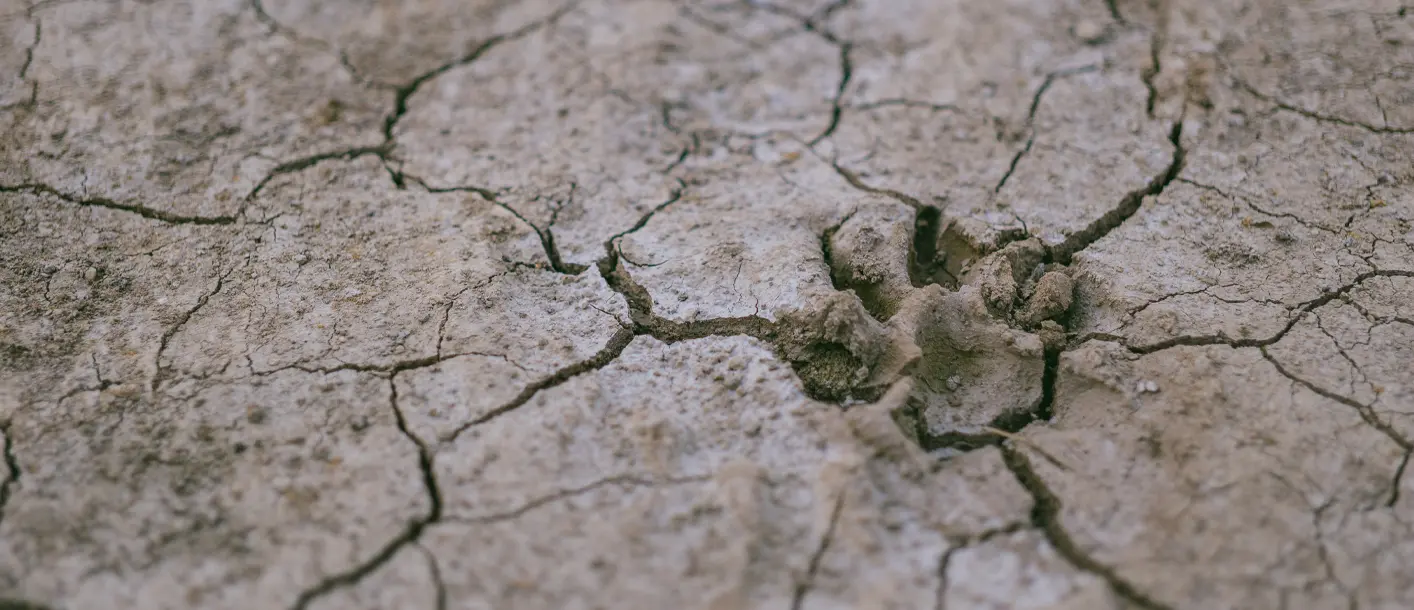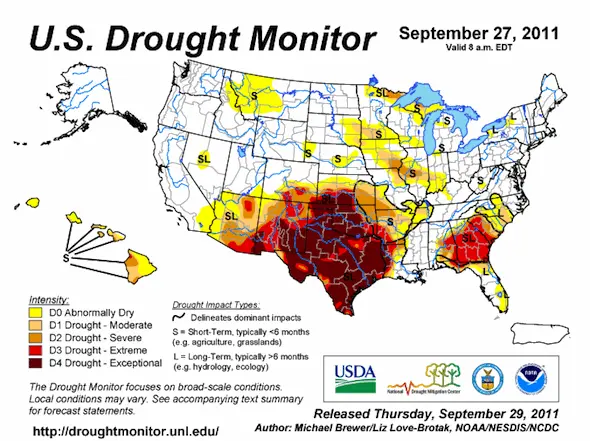Survive the Drought
In the minds of many people, emergency situations are something sudden, striking and fast.
In the minds of many people, emergency situations are something sudden, striking and fast.

In the minds of many people, emergency situations are something sudden, striking and fast. An emergency or disaster comes out of nowhere and lasts for a short time, with considerable consequences. Drought seems to be the opposite of that: drought comes slowly, undetected and quiet. It can last for weeks, months, and sometimes even years. If you don’t prepare for a drought in advance, you will notice the lack of water when it’s already too late.

(US drought map - September 29, 2011 (source: NOA, NESDIS, NCDC))
In the minds of many people, emergency situations are something sudden, striking and fast. An emergency or disaster comes out of nowhere and lasts for a short time, with considerable consequences. Drought seems to be the opposite of that: drought comes slowly, undetected and quiet. It can last for weeks, months, and sometimes even years. If you don’t prepare for a drought in advance, you will notice the lack of water when it’s already too late.
When your region doesn’t get enough water from rain or underground sources, you will see the effects quickly. The grass will get dry, turning brownish and yellow in color. Crop and livestock will get dehydrated, malnourished and sick. You may also notice changes in landscape, more dust in the air and more snakes on the ground. Certain areas of the country are already adapted to drought conditions with succulent plants and desert animals. However, if drought hits a part of the country that is used to regular rainfall and the environment is unprepared for this unusual condition, consequences can be deadly.
Droughts bring reduced electricity production, because dams being used for producing the hydroelectricity will reduce its water flow. You may feel the shortage of water for your everyday use with reduced hours when you can use water for more than cooking and hygienic purposes. Droughts may affect your business, your household and yourself if you get dehydrated. Dry spells also increase the risk of wildfire.
Extreme droughts are usually associated with extreme heat, so learn how to recognize and treat emergencies related to high temperatures such as heat stroke or sunburn. Start conserving water by fixing all leaks in your house, reduce outside grass and greenery that consume more water than necessary and if your area is prone to droughts, have an emergency water supply ready. In case of drought, it could be beneficial to have water stored, such as waterbricks or other containers. Remember, each person needs about a gallon of water a day. Stay safe by preparing for the possibilities.